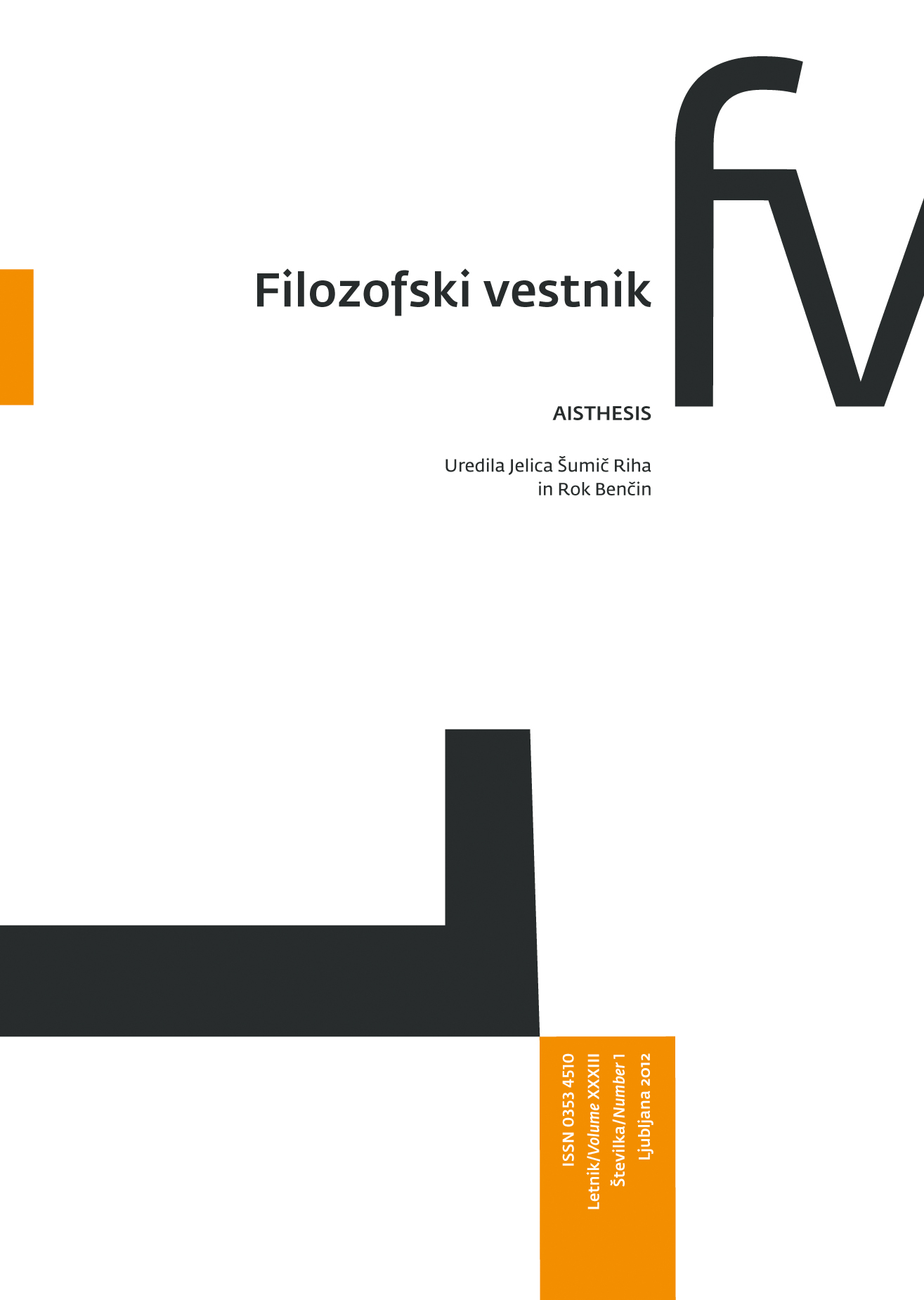Estetska revolucija: Schlegel, Malraux in Rancière s Schillerjem
Ključne besede:
estetska revolucija, umetnost, estetika, Jacques Rancière, Andrè Malraux in Friedrich SchlegelPovzetek
Jacques Rancière je v svojih novejših delih pogosto obravnaval pojem »estetske revolucije«, ki naj bi jo posredno razglasil Friedrich Schiller v delu O estetski vzgoji človeka (1795). Pomenila naj bi nastop nove umetnosti, oziroma njenega »estetskega režima«, s katerim je želel Rancière nadomestiti po njegovem mnenju neustrezna, čeprav močno uveljavljena, koncepta modernizma in postmodernizma. V članku avtor opozori na nekatere interpretacije »estetske revolucije« kot jih najdemo pri Friedrichu Schleglu in Andréju Malrauxu in ki vsebujejo nekatere podobnosti z Rancièrovo razlago. Avtor hkrati opozori na pomen estetske revolucije v množini, s pomočjo katere lahko po njegovem mnenju produktivno razložimo mnoštvo tovrstnih revolucij v preteklem stoletju in ki se gibljejo v vmesnem prostoru med umetnostjo in politiko ter umetnostno avtonomijo in heteronomijo.Prenosi
Podatki o prenosih še niso na voljo.
Prenosi
Objavljeno
2016-02-06
Kako citirati
Erjavec, A. (2016). Estetska revolucija: Schlegel, Malraux in Rancière s Schillerjem. Filozofski Vestnik, 33(1). Pridobljeno od https://ojs.zrc-sazu.si/filozofski-vestnik/article/view/4181
Številka
Rubrike
Aisthesis
Licenca
Avtorji jamčijo, da je delo njihova avtorska stvaritev, da v njem niso kršene avtorske pravice tretjih oseb ali kake druge pravice. V primeru zahtevkov tretjih oseb se avtorji zavezujejo, da bodo varovali interese založnika ter da bodo povrnili morebitno škodo.
Podrobneje v rubriki: Prispevki





